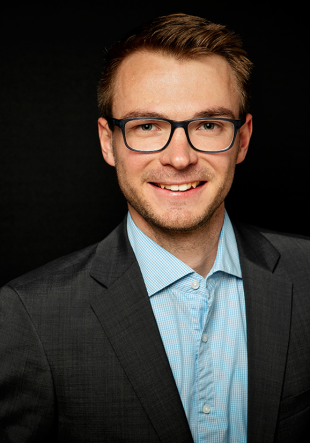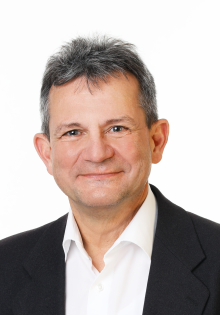The New Mobility Paderborn (NeMo) initiative and the NeMo.bil project it initiated, which is sponsored by the Federal Ministry for Economic Affairs and Energy (BMWE) with around 18 million euros, have reached the next milestone. The first automated demonstration drives of an INYO-Cab in the non-public field at Paderborn/Lippstadt Airport took place in the company of NeMo e.V. members, NeMo.bil project participants and other participants from the Germany-wide network. Further automated journeys are planned in the Paderborn region in the foreseeable future.
The NeMo initiative, which has more than 70 members from business, science and local authorities, is pursuing an ambitious vision. It wants to take a holistic view of mobility and create a sustainable mobility ecosystem. The first step is to create a solution for individualised public transport as part of the NeMo.bil project and to further advance automated driving. With extensive work in the fields of development, approval and testing, the project is right on schedule.
"We are very proud of the progress of our largest project to date, NeMo.bil. We are currently in the transition from the development phase to the testing phase. We would like to thank everyone involved in the project, who are working flat out on the digital tools and the vehicles and are preparing the necessary approval processes with great commitment," emphasise Board members Andreas Speith, Christoph Rüther, Michael Heinemann and Simone Probst. The initiator of NeMo is Prof Dr Thomas Tr?ster from Paderborn University.
NeMo achieves a level of efficiency that is unique in Germany on the basis of small, lightweight, electrically powered vehicles. The NeMo.bil project is pursuing a new approach: the cabs pick people up directly at their front door, especially in rural areas, thus providing new impetus for resource-saving and individualised public transport that connects urban and rural areas.
As part of the BMWE-funded project, the participants are developing a mobility system for needs-based passenger and freight transport, which they will also demonstrate as a prototype during the project period until 30 June 2026. To this end, NeMo.bil is pursuing an innovative approach with two automated vehicle types: Swarms of smaller vehicles (cabs) serve the first and last miles and join together on longer routes to form a convoy pulled by a larger vehicle (Pro).
The first manual demonstration drives in April this year marked the start of the test drive cycle. NeMo e.V. was able to rely on the specialist expertise of Augsburg University of Applied Sciences (vehicle automation) and INYO Mobility GmbH (vehicles) to carry out the first automated journeys. "In the further course of the project, we also want to be on the road with a safety driver in public spaces," announced NeMo.bil consortium leader Marcus Zwick, Managing Director of INYO Mobility GmbH.
The project partners are currently working on setting up the Pro vehicle and the digital ecosystem. At the same time, they are equipping the cabs with modern automation technology and initiating the processes for automated driving with safety drivers in public spaces (approval according to AFGBV test authorisation). The system is now gradually being rolled out on the road as planned.
About Neue Mobilit?t Paderborn e.V.
Taking a holistic view of mobility concepts, vehicle systems, energy generation and digitalisation: This is the goal of the New Mobility Paderborn (NeMo) initiative, which brings together more than 70 network partners.
Further information: www.nemo-paderborn.de
About the NeMo.bil project
19 partners are involved in the NeMo.bil project: Aspens GmbH, AVANCO Composites GmbH, CADFEM Germany GmbH, CP Tech GmbH, Deutsches Zentrum für Luft- und Raumfahrt e.V. (DLR), dSPACE GmbH, FIWARE Foundation e.V., HOLON GmbH, INYO Mobility GmbH, LIA GmbH, Neue Mobilit?t Paderborn e.V., PHOENIX CONTACT E-Mobility GmbH, Poppe + Potthoff GmbH, Reisewitz GmbH & Co. KG, Augsburg University of Applied Sciences, Ostwestfalen-Lippe University of Applied Sciences, Dortmund University of Technology, Paderborn University and the Berlin Science Centre.
Further information: www.nemo-bil.de
This text was translated automatically.




